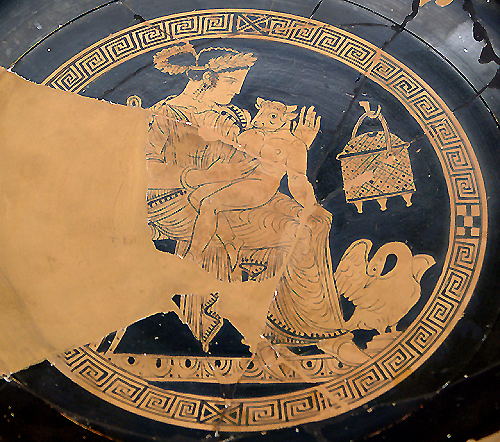Red-figure painting on the interior of a cup (kylix), showing Pasiphae
with the baby Minotaur (340-320 B.C.), from Vulci, now in the Cabinet
des Médailles, Paris, France.
Pasiphae, whose name signifies “the bright one” (probably
an epithet of the moon), was the daughter of the sun god and the wife
of the king Minos of Crete. She fell in love with a wonderful white
bull, which Minos had received from the sea god, Poseidon, as a gift.
From the intercourse with the animal, the Minotaur was born, a being
with a human body and the head of a bull, who held also the name of
Asterion or Asterios and was sometimes depicted with his body sparkled
with stars, a symbol of his sacred character. The image of the Minotaur
is widespread in the artistic representations, because of the diffusion
of the motif of the fight between the hero and a bull-man: the killing
of the monster is indeed attributed to Theseus, the Athenian hero.
[Source: http://en.wikipedia.org/wiki/Minotaur]


